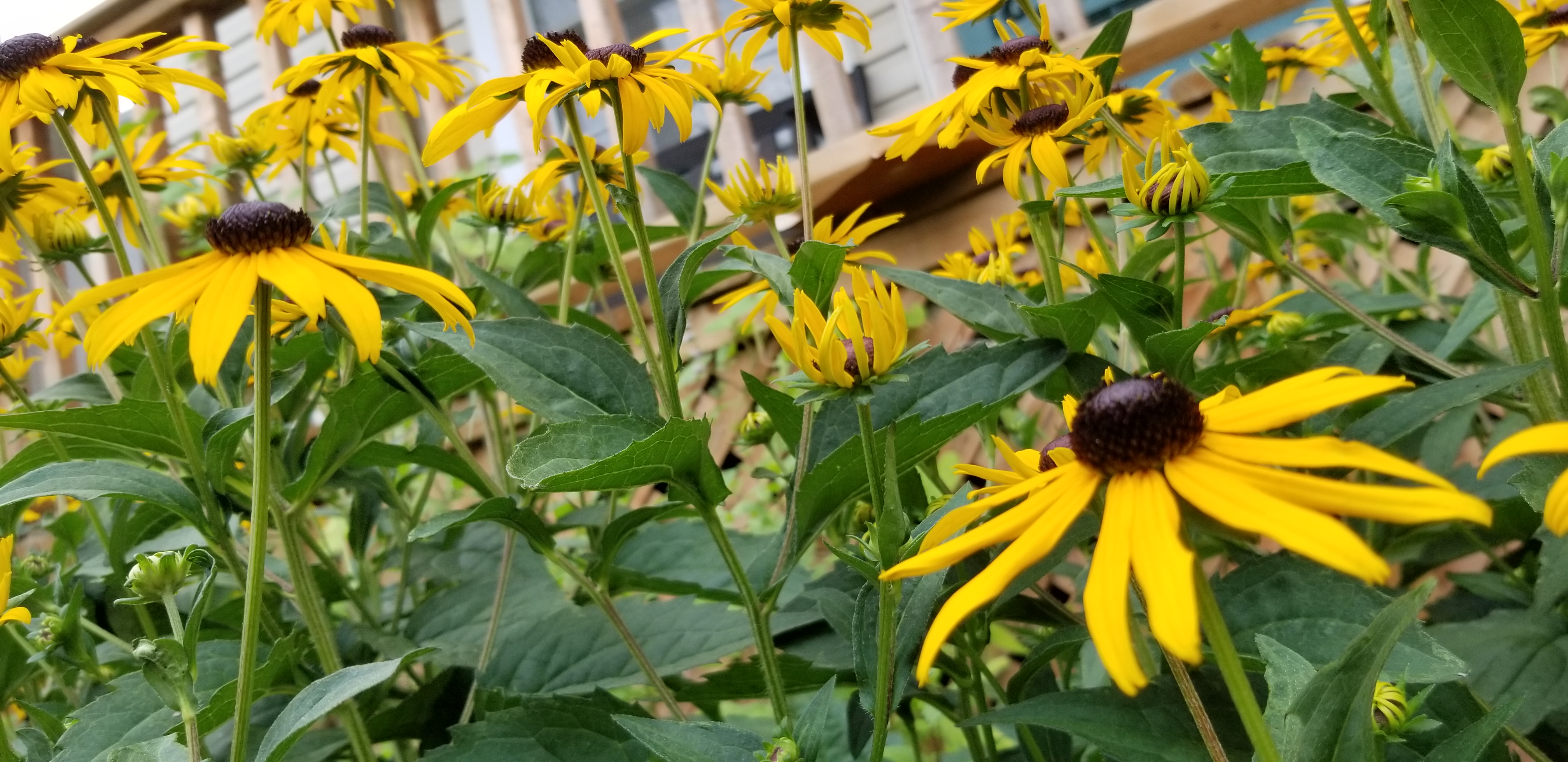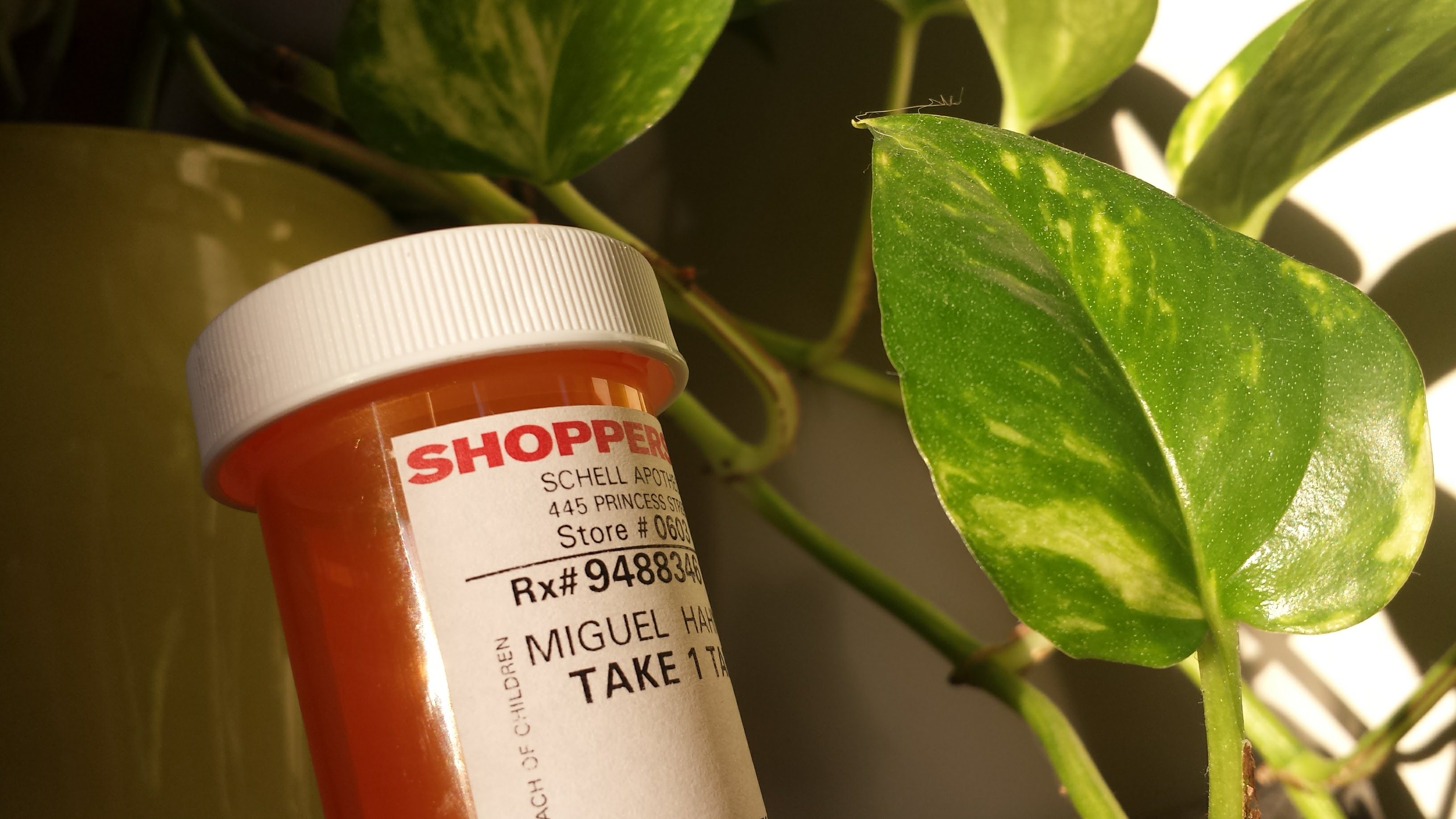Lately I’ve been paying attention to something new.
Specifically, I’m paying more attention to what I pay attention to. And noticing that it matters. A lot.
In the past few months I’ve been noticing myself starting to slip a bit off the track into unhelpful patterns of thinking. Ruminating. Spinning my wheels. Focusing on work that needs to be done. Things that could go wrong. Signs of trouble in the world. And unsurprisingly, feeling not that great as a result.

Not that paying attention to these things isn’t a necessary and important part of life – but the right amount, at the right times – is not something I’m always that mindful of. I can get careless with what I let my attention sit on, kind of like drifting off the road and into the ditch – that level of paying attention clearly matters.
The more I observe how my brain works, the more I see how the default mode isn’t always ideal. When things are going well, they tend to keep going well. Why? I think a big reason is because of how I am thinking about them priming me to pay attention. If my current story is that life is good, then I look for signs of that in the world around me.
For example – this fall, when I was investigating my health, and taking new vitamins and minerals, dealing with the parasite – I would be intentionally paying attention to clues. Wondering – Is this working? Do I feel better? Are there signs of improvement? And I would notice them – see little things that show me I felt a bit better, more energy, stronger. And that incoming data affects my story, strengthening it – confirming that I am doing better. And surprise, I feel better. I develop confidence, faith that life is ok.
And during my fall projects at work too, I would have the same positive feedback loop. I would think that I am good at my job, that I am helping people, that I actually know what I’m talking about and have something to contribute – and I see the signs. Confirming that I deserve to be here. That I have something to say that is worth hearing. And I take on bigger challenges, and meet them – succeeding in the first full semester course, co-teaching Designing Your Life at Queen’s, and launching our new certificate for professional development in Career and Academic Advising. And if small things go awry, I’m mostly focused on how things are going well, and feeling good.
But with the weight of winter, and a lack of sunshine catching up to me, my mood starts slipping. I started having a few episodes of despair, and periods of social anxiety in social settings. And things start to shift in the opposite direction. I begin to question my narrative that I am happy, healthy, and strong. And I start going into situations primed in a different way. Primed to look for signs of trouble. Seeing the world is not a happy place. That we are heading for catastrophe. And in my life, the progress I thought I was making, was not really happening. That I’m still going to be trapped by low mood and anxiety – in the face of growing commitments at work that demand me being at my best, and with spring projects around the corner on the homestead. My outlook shifts. It looks bleak.
Cognitive Behaviour Therapy tells us some useful things about these feedback loops. How when I’m anxious, I start to pay attention to specific things – in my case, with social anxiety, I pay attention to my anxiety itself, noticing it growing, and paying attention to cues from people around me – that I am awkward, boring, and not worth talking to. And even if I get signals to the contrary, I’m focused on those signals that things are going wrong – and it tends to steer me further off track. Into panicking and blanking out and needing to get away to regulate. The same with depression – I can start looking to confirm my negative and hopeless views – and see it signs to tell me I’m right. It’s hopeless.
All of which reminds me of a brilliant idea from Joanna Macy in her powerful book Active Hope. The whole book is amazing, but the key idea for today is the Three Stories of Our Time. She outlines three main narratives that we tend to adopt about how the world is doing – each with its own unique consequences. In story number one, Business as Usual, we keep our blinders on. We ignore signs of trouble – and focus on living our lives, one day at a time. This is fine, we say. We just keep doing what we are doing, not needing to make any changes. Underneath this might be some doubts we push out of our minds – afraid to see what might be revealed.
If we pivot, and look at what is going wrong, we can see the second story, The Great Unravelling. Things are falling apart. The world is fucked. We are on fire. Pollution. Inequity. Poverty. War. Pandemics. The actual apocalypse is here and it’s being broadcast 24/7 across our screens and minds. No wonder we want to focus on business as usual. And if we focus on the negativity, it is all too easy to spiral into despair. Into giving up and making no effort for the better.
Luckily, there is a third option. The Great Turning. In this option, we see the first 2 stories. But we also see signs of hope. That in the middle of all this turmoil, there are signs of change a coming. That radical new ways of being and thinking and doing are hatching. We see new ways of organizing. Increasing global consciousness. Connectedness. Technological progress. Ecological insights and tools and methods. Communities growing and strengthening. Growth. Transformation. Rebirth. In this option, because of a shift in focus – we DO take action. Make change. Connect. Take risks. And a positive feedback loop emerges, and perpetuates itself.
As critical as this idea is for our survival as a species on this planet – I keep finding it spilling out into different levels of my awareness. Not just in the macro story of the planet. But of my local community, at work – where there is despair over financial austerity measures, hiring freezes, budget cuts, job losses. Or in my personal life with my health, my mood, my relationships, my land.
Trouble is, for me, and many of us, the habits to dwell on story number 1 or 2 are deeply entrenched. I have well worn grooves and ruts in my mind, as well as biological programming, to pay attention to threats in the hopes of surviving them.
So, lately, I’m working on building a very specific muscle. My attentional control. The thing is, I already happen to have a practice for this, that I have neglected when things were going well. Meditation is literally about paying attention on purpose. So I’m bringing it back. And devoting extra time to the practice of working to master my mind. Focus my attention on my breath, over and over. Bringing it back, and taming the wild elephant. By being conscious of this, I develop that part of my brain that lets me have some choice. A meta-awareness – about my awareness and where it is dwelling.
And I can choose then. To focus on what is helpful. Even just focusing on the present moment, my breath, what’s real around me – takes me out of the negative film reel – and starts to snip the feedback loop. And if I choose to focus on signs of good, then I can inject new energy into my system – inspiration, and hope.
Even in my meditation practice, this already bears fruit. Instead of focusing on pain in my body, I focus on opening. Focus on expansion. Change. Shifting. When I focus on the pain, I tend to contract, and the pain increases. When I focus on expansion and change, I open, it loosens, and the stuck energy begins to circulate again – breathing vitality into my being.
In life too, I can bring this practice – focusing on strengths, gratitude, and hopes and dreams. What is going well. Asking hopeful questions. And seeing the raw data that confirms and feeds positive feedback loops. Going into a party or a workshop, I can focus on signs of connection. Of empathy. Of humour. Care. And in my body, of flowing. Loosening. Freedom. And it changes too.
Lucky for me I have an upcoming 10-day meditation retreat coming where I can do some intensive attentional muscle building and hopefully carry that momentum back into real life, off of the cushion.
But it starts again. Right now. Here. What story am I telling? What do I focus on? There is freedom in each moment to start again. Reset. And get back on track.









